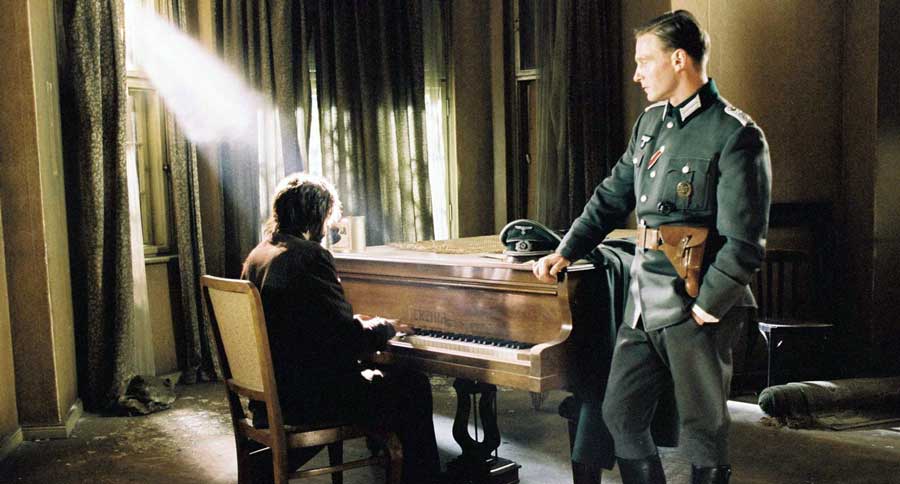Directed by Roman Polanski, “The Pianist” was a touching and harrowing depiction of survival during the Holocaust, based on the true story of Polish Jewish pianist Władysław Szpilman. The film masterfully captured the brutality of the Nazis and the resilience of the human spirit in the midst of unimaginable suffering. The story presents Szpilman’s journey from being a successful pianist in Warsaw to struggling to survive in the ghettos and then hiding from the Nazis, with harsh cinematography. The narrative offers an unflinching portrayal of the Holocaust; it highlights both the cruelty of the Nazi regime and the compassion of those who risked their lives to help others. The storytelling showcases the brutality of war and man’s raw instinct for survival in an emotionally gripping way, while also not shying away from showcasing the horror of the horrific acts committed by the Nazis, making it an effective and moving film.
I would like to mention Adrien Brody as Władysław Szpilman. Szpilman did an incredible job of capturing the hope, fear, and despair he experienced throughout the film. I could almost feel the sadness in Szpilman’s eyes, especially when he was impressed by the transformation he went through while stuck in the attic. Brody’s commitment to the role, including his physical transformation and emotional depth, rightfully earned him an Academy Award for Best Actor.
The film’s cinematography by Paweł Edelman was much better in my opinion. The use of soft colors and sharp contrasts between light and dark powerfully conveyed the gloomy atmosphere of Poland during the war, and I’m sure other viewers will think so too, even though many years have passed. The camera work, especially in the scenes depicting the destruction of Warsaw and the desolation of the ghettos, reflects the desperation and loneliness experienced by the characters. The visual narrative is touching enough, thus increasing the emotional impact of the film. If we talk about the strengths of the film, we can say that The Pianist succeeds in presenting history in a realistic way. Rather than glorifying the horrors of the Holocaust, it presents a raw and unexplained image. The film’s originality, fluent storytelling, satisfying performances and magnificent cinematography make it a cult film that resonates long after the credits.
Even though it was such a strong movie, the movie still had its shortcomings. While this is an emotional reckoning, some critics argue that supporting characters should have been explored more deeply to expand and develop the story. Additionally, although this deliberate approach adds to the film’s emotional impact, some viewers may find the film’s pacing a bit too slow, especially during long silences. All things considered, “The Pianist” is a remarkable cinematic achievement that effectively conveys the horror of the Holocaust with powerful storytelling, great performances and striking visuals. The film’s mastery in evoking raw emotion and showing the resilience of the human spirit in the midst of unimaginable pain cements the film’s place as a moving and enduring work of cinema.

